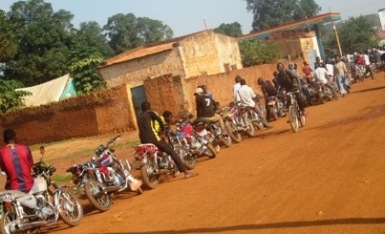S. Sudanese lawmakers demand probe into $250m fuel fund
December 16, 2014 (JUBA) – South Sudanese lawmakers on Monday debated the causes of soaring consumer prices mainly attributed to scarcity of hard currencies in the country, despite financial allocations made by the central bank.

“We made a mistake to award contracts for the delivery of essential commodities to companies which we did not know what they have done with the money given to them by the central bank,” Magok told lawmakers.
He said letters of credit were given money to companies to enable them buy fuel and supply.
“This situation must be corrected and it must be done now. We cannot allow our economy to be taken over by the foreigners not concerned by the suffering of our people and the situation in which the country is going through. We will investigate this and those who will be found to have not delivered will have to answer,” he said.
The cost of living has risen in South Sudan since the country’s conflict broke out. Currently, for instance, a litre of petrol now costs approximately SSP 70 from SSP 25.
GLOBAL FALL IN OIL PRICES
At a recently meeting of the Organisation of Oil Exporting Countries (OPEC), crude oil prices reportedly fell by 30% following sluggish global demand and rising production from the United States since June.
Following the announcement by OPEC not to cut output, Brent crude reportedly hit it’s lowest since August 2010, falling below $72 a barrel, before settling at $72.9, which represented a 5% drop.
The fall in the oil price has been causing concern for several members of the oil cartel, as most require a price above $80 a barrel to balance their government budgets and many need prices to be above $100 a barrel.
The leader of minority in South Sudan’s national parliament, Onyoti Adigo says the fall in global oil prices will not only deny authorities badly needed foreign exchange, but hard hit citizens.
“We are already at war and the demands are great. Most government institutions will not operate properly,” he said.
South Sudan, a country which is entirely dependent on oil to fund 98% of its national budget, is not exempted from the global shocks in prices as any fluctuations affect its balance of payments.
Many analysts have been calling for diversification of the economy away from the unpredictable oil but, little efforts seem to be at play.
(ST)
